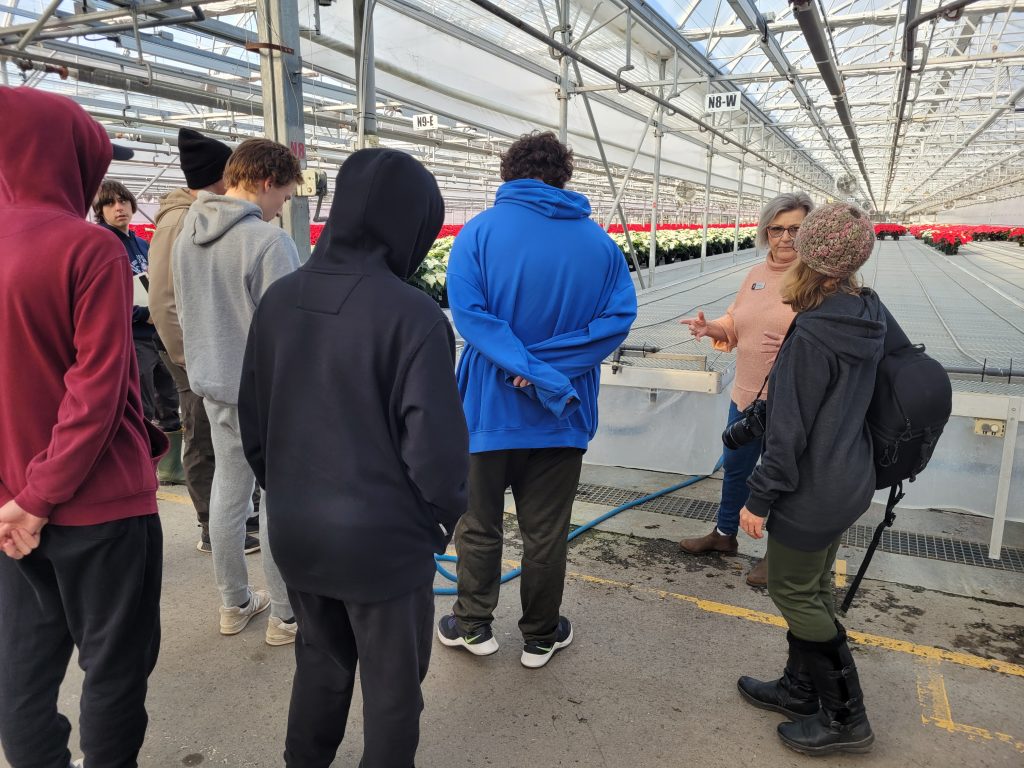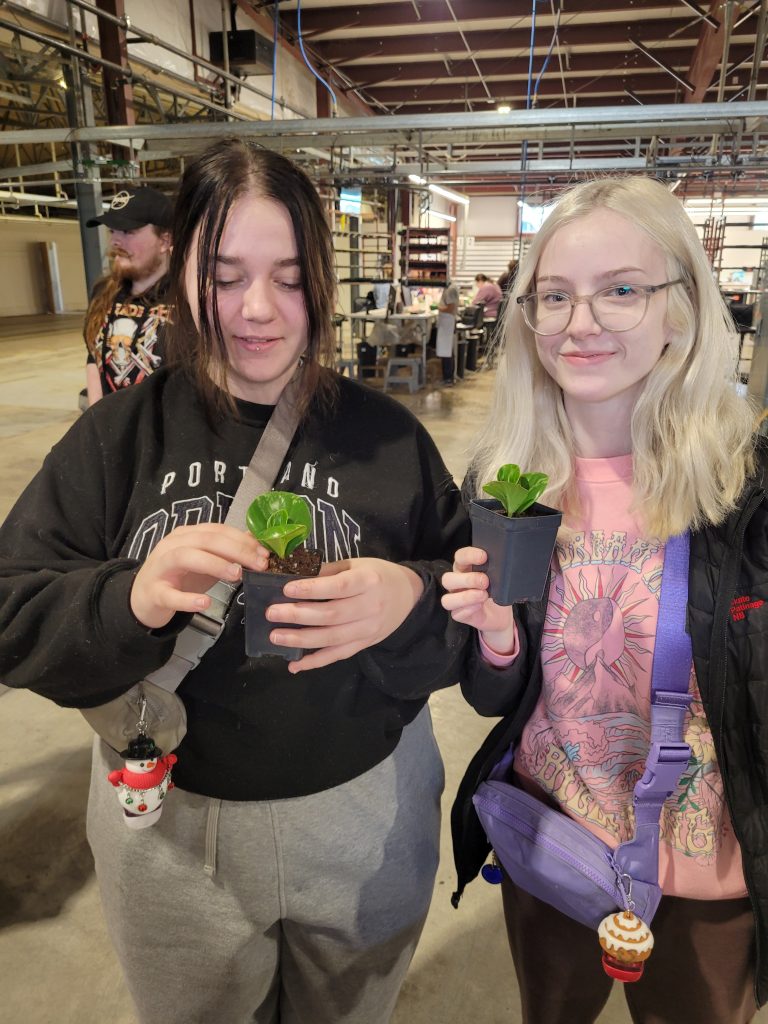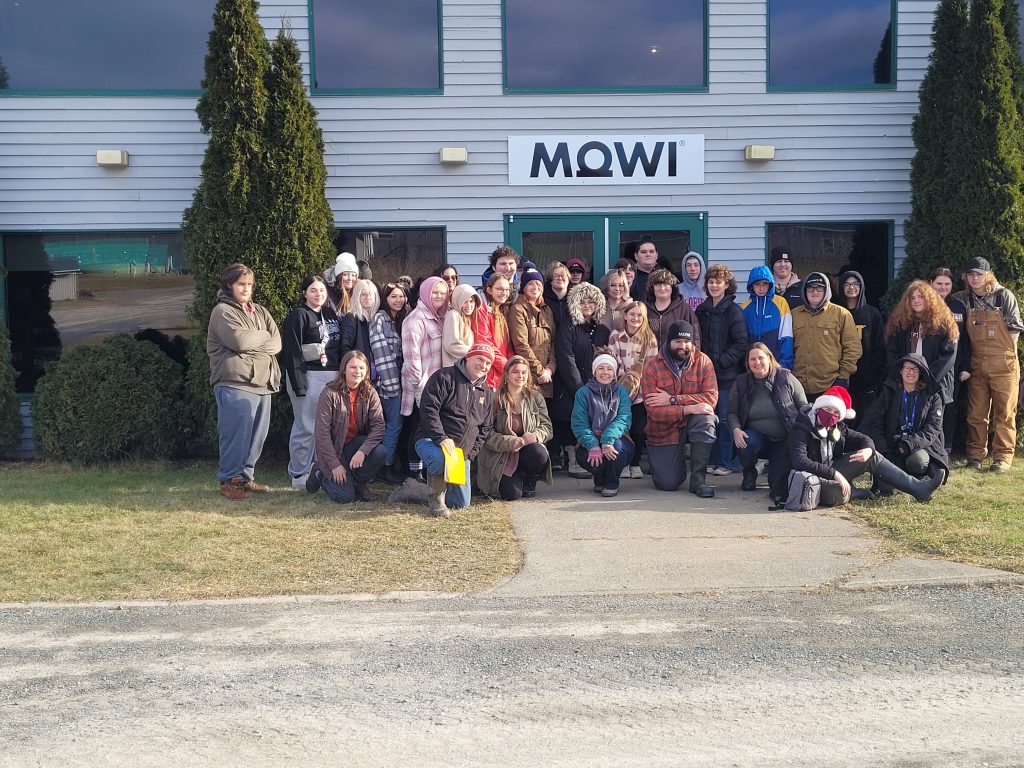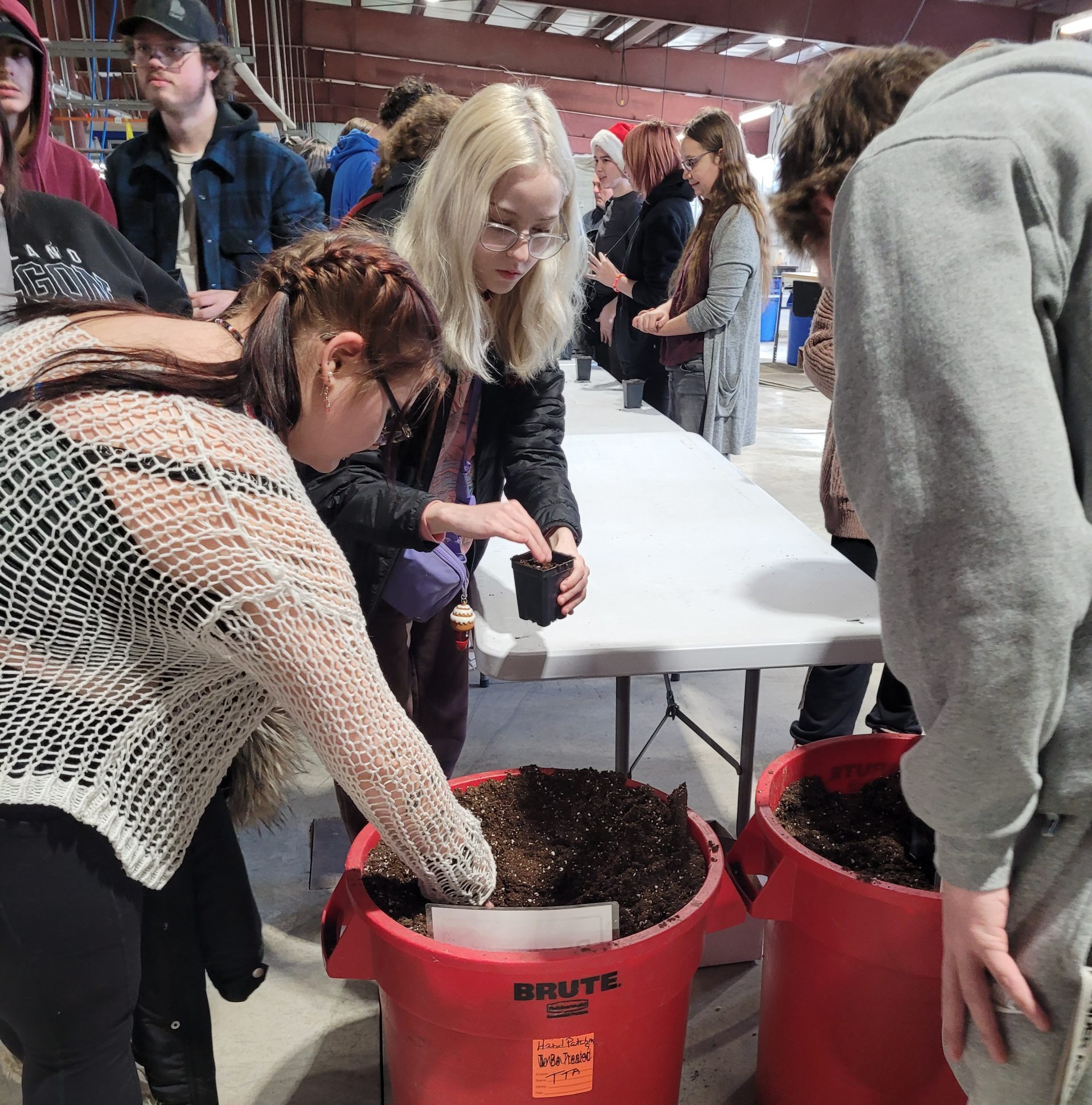
Students from Oromocto High School (OHS) got a unique opportunity to stoke their interests, while learning about the food chain and sustainable farming, during recent visits to The Jolly Farmer farm and the MOWI Canada East hatchery, on Wednesday, Nov. 29.
OHS teachers Bill Jackson and Trista Michaud-Hachey brought 40 of their Grade 10, 11, and 12 students to both Northampton, N.B.-based facilities to expand their agricultural/aquacultural knowledge and show them how their interests can be of use in both those fields.
“I want our students to better understand the food security systems that we have in Canada, to know what they’re consuming and where it’s coming from,” said Jackson.
Jackson conceded that the visits were meant to develop an interest in the food chain and sustainable farming for young people who may not realize they have an interest. However, for students with an interest, the visit was a homecoming of sorts.
“I took this course because I was always very passionate about gardening, loved learning about animals, and was always very curious about the agriculture lifestyle, especially with growing my own produce,” said OHS Grade 11 Student Jada Corkum. “I really loved seeing the process and environments of both places we visited.”
“Learning all these things from professionals makes me feel included and motivated”
OHS Grade 11 Student Jada Corkum

During their hatchery visit, students witnessed salmon in various stages of their life cycle, from eggs to when they are ready to be placed in ocean pens. At the 13-acre Jolly Farmer farm, students saw how food plants were cultivated from seed, to harvest, to shipping. They even helped plant some plants and were given small plants to tend to at home.
Said Jolly Farmer Sales Representative and Tour Guide Debbie Brown, “The hope is that some students have taken an interest in horticulture and pursue a career in the field. Their many questions showed an interest!”
For Michaud-Hachey, the trip was a much-needed return to form following Covid restrictions.
“With the last few years, field trips kind of waned, so it was nice to see them out and about,” she said. “Students are on their screens all the time, so they need to see it for real, to smell it, to be there.”
The trip served Grade 11 student Devon Fagan’s natural interest in fish.
“I take a lot of interest in fish and where they come from,” said Fagan. “The part I liked most about the trip was visiting the fish farm and seeing how much salmon they produce. I think aquaculture and agriculture are important because they generate a lot of money and jobs for people in our area.”
According to the province’s aquaculture and agriculture reports, aquaculture brought roughly $260 million in revenue to New Brunswick in 2021, the last year for which records are available. Agriculture brought in $734.2 million for the same period.
Something for everyone

The visits held the attention of more than just students with an interest in fish and farms. Several students in Michaud-Hachey’s group were fascinated by the machinery at each facility.
“They didn’t care much about the plants but were interested in how the plants were moved and maintained,” she said. “There were a couple students that were really interested in the mechanics of it. They were looking at the workshop,” she said.
And Michaud-Hachey even got her photography students involved.
“I asked for three volunteers that wanted to come for part of their grade,” she said. “They have to do some real-life jobs, so their marks were based on pictures they gave me from the field trip.”
“When we take kids to these things, it exposes them to the careers they could have—things that they may not have realized were involved with agriculture like electrician, mechanic, marketing sales,” said Crystal Roberts, ASD-W Senior Experiential Learning Coordinator.
This year’s second agricultural outing follows last year’s successful initial trips to the Connell Sheep Farm near Gagetown, and the Howe Family farm in Burpees Corner.
In addition to developing an interest in the food chain and sustainable farming for students who may not be aware they have an interest in such things, Jackson also wants them to pay attention to the factors that impact food production.
“Those concerns could be environmental; they could be social. I want them to become more informed citizens,” he said.
For students like Corkum and Fagan, who already have agricultural and aquacultural interests, the visits are paying off.
“Learning all these things from professionals makes me feel included and motivated,” Corkum said. “Hopefully one day I’ll be able to have a beautiful garden of my own; maybe even a work environment where I can work around plants that’ll put my knowledge to good use.”
Said Fagan, “I will be more conscious of environmental impacts when choosing foods from the store.”

